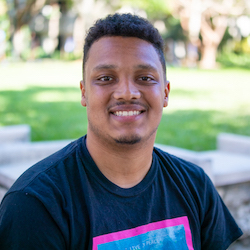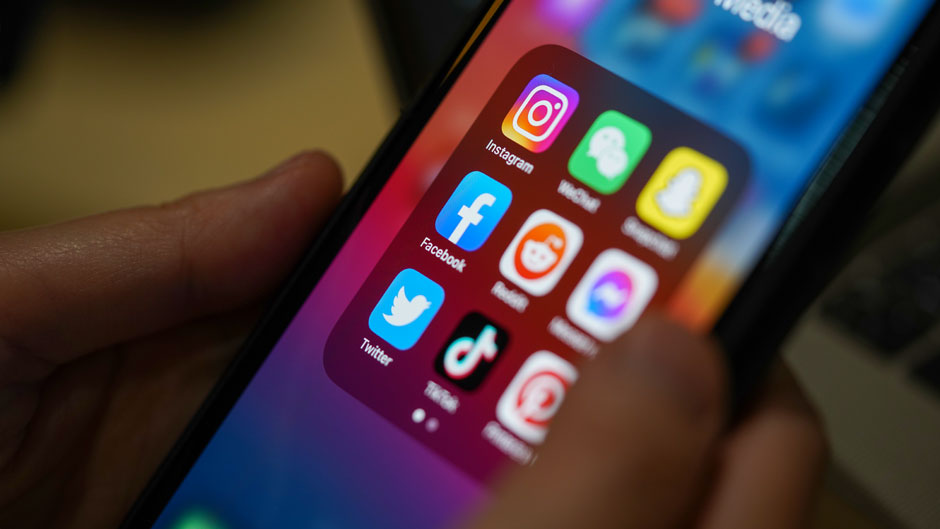Now, more than ever, Generation Zers are spending time online. According to the Pew Research Center, 97 percent of teenagers use at least one major online platform, like Instagram, Twitter, or TikTok.
And, whether a person spends five minutes—or hours—online, social media is shaping the everyday lives of even the youngest generations of users. Social media’s influential celebrities provide constant updates, giving followers unprecedented access to their content across platforms.
“Social media is a platform where they can express what they like to,” said Regina Jihea Ahn, assistant professor in the University of Miami School of Communication. “They can share their thoughts, or feelings. We see it trending now more toward photos and videos,” highlighting the popularity of TikTok, Instagram, and Snapchat.
Ahn pointed out the growing popularity of the social media platform BeReal, a French social media app where users are notified simultaneously to capture and share an unfiltered photo in two minutes, suggesting that Gen Zers are looking for more authentic ways to share content. “A lot of Gen Z are tired of the filters and Photoshop. They are looking for a more genuine connection when they are online,” Ahn said.
Still, Gen Z is spending several hours a day online consuming curated content, connecting with friends, or reading news. While some research indicates that a higher percentage of teenagers report increased anxiety due to increased social media use, Ahn noted that social media can also provide feelings of belonging and community and a place to discuss mental health, body image, and wellness.
“There are some influencer communities that get together and share their anxieties,” she said. Ahn’s research focuses on media literacy and social media, among children and Gen Z, providing critical perspectives on advertising, influencer marketing, or emerging technologies for these generations.
University undergraduate students, who fall into the Gen Z category, weighed in on their use of social media and its influence on their generation.
Kayla Singer, a first-year student studying broadcast journalism.

Singer uses Instagram, TikTok, and Snapchat daily for about three hours a day. Though she turns off her notifications before unplugging to sleep, she believes she would have more quality sleep if she didn’t have the distraction.
“There are pros and cons for our generation,” Singer said. “It has been able to bring people together with interest and opportunities. But it can also cause a negative self-image and cause stress. I shouldn’t, but I wake up and go straight to social media.”
Sara Kelly, a sophomore studying creative advertising.

“I use my phone the most during the evening, but I reach for it in the morning, too,” Kelly said. “At night I’ll stay up scrolling on TikTok for hours.”
Kelly shared that she spends about five hours a day on her phone, with about half of that time spent on social media.
“For the most part I think our generation’s use of social media is harmful, and it's not used in the right way,” she said. “I think I would feel better day to day if I could use my phone less. The impact of using it is more negative. If I used it less, I would feel more relaxed and present.”
Max Baumann, a junior studying sociology.

Baumann takes a deliberate approach to his use of his devices.
“I try really hard to be intentional about not using my phone in the morning. It’s important to start on a positive note; it sets the tone for the day,” he shared. “Same with the evening, I disconnect. I end my day reading 30 to 50 pages of a book. It really helps wind your mind down.”
Still, the student acknowledged that he spends about four to five hours a day online, using platforms like Discord, texting his friends, or emailing. To mitigate the effects of his time spent online, he utilizes his devices’ blue light settings to dim bright screens.
“Our generation's true virus is the use of our phones. It doesn’t allow people to be mindful or present. They are looking at what everyone is doing, and it can create jealousy and insecurities,” he added.
Hunter Parks, a sophomore studying economics.

“Technology is helpful and harmful. It’s harming younger people’s confidence. But it’s also impactful because you connect with people that you are close to,” Parks said. The student shared that he uses social media to stay up to date on his family in California while he’s away at school.
“Social media has been impactful for me; I don’t know what I would do without it,” he said.
“My phone does make me less productive, though,” he acknowledged. “I catch myself wanting to pick up my phone and check what’s happening. It’s FOMO (fear of missing out).”
Soriah Baptiste, a sophomore studying nursing.

“As soon as I wake up, I go to my phone. I check TikTok and my messages. In the evening, I try to cut down using my phone. I just listen to music,” said Baptiste. The nursing student shared that she spends about 9-10 hours a day on her phone, mostly on platforms like Instagram and TikTok.
“Sometimes I get too attached to social media that it gets in the way of my work. Two hours could go by and I wouldn’t notice. I even check my phone without hearing a notification sound. I check it just to check it,” she said.
Baptiste shared that she believes social media has had a harmful impact on her generation and has affected how her peers communicate offline.

